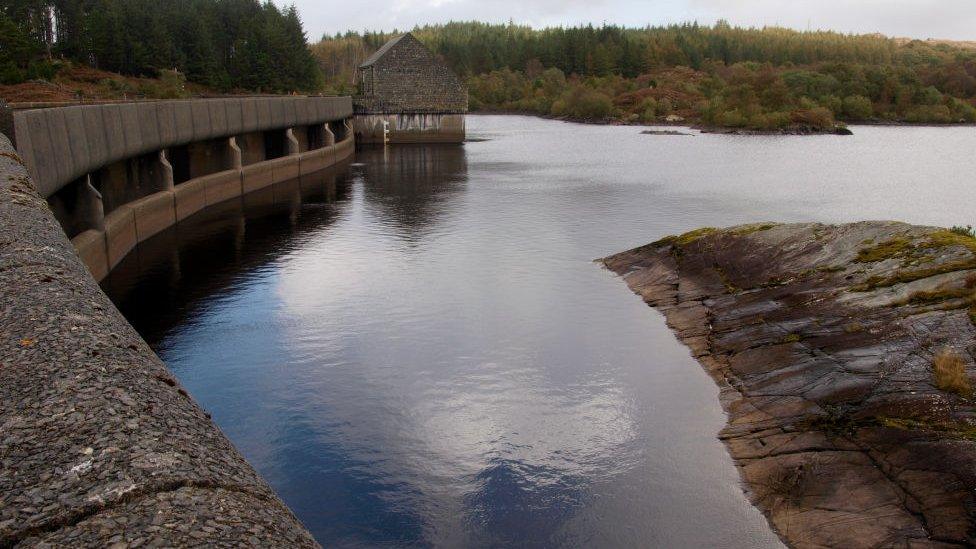Weather: No drought warnings expected in Wales this summer
- Published
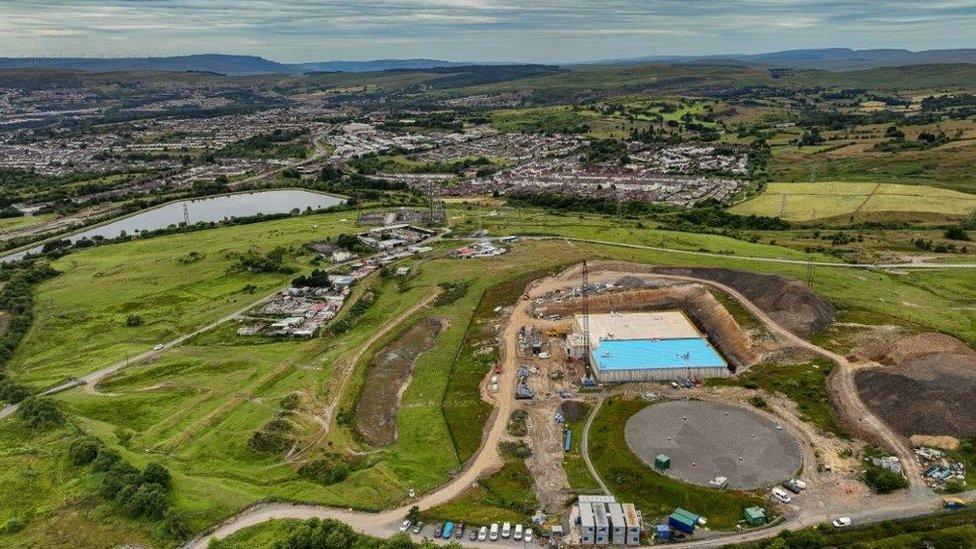
Additional water storage at reservoirs like the new one at Pengarnddu, Merthyr Tydfil, will reduce the likelihood of restrictions
Hosepipe bans and drought warnings are not being contemplated in Wales this year, water bosses have said.
Reservoir and river levels have recovered after the driest spring and summer for more than 150 years in 2022.
But with Wales forecast to stay dry until the end of May, the public are being urged to be "thoughtful" about how much water they use.
Welsh Water said there was no doubt climate change was having an impact on its supplies.
Last year's drought saw reservoir stocks "under severe pressure" and "unprecedented" demand from customers, chief executive officer Peter Perry said.
A hosepipe ban was imposed in Pembrokeshire and parts of Carmarthenshire, affecting about 60,000 properties.
As weeks of dry weather turned to months without significant rain, all of Wales was eventually declared to be in official drought.
It was January 2023 before the situation was deemed back to normal by environment watchdog Natural Resources Wales.
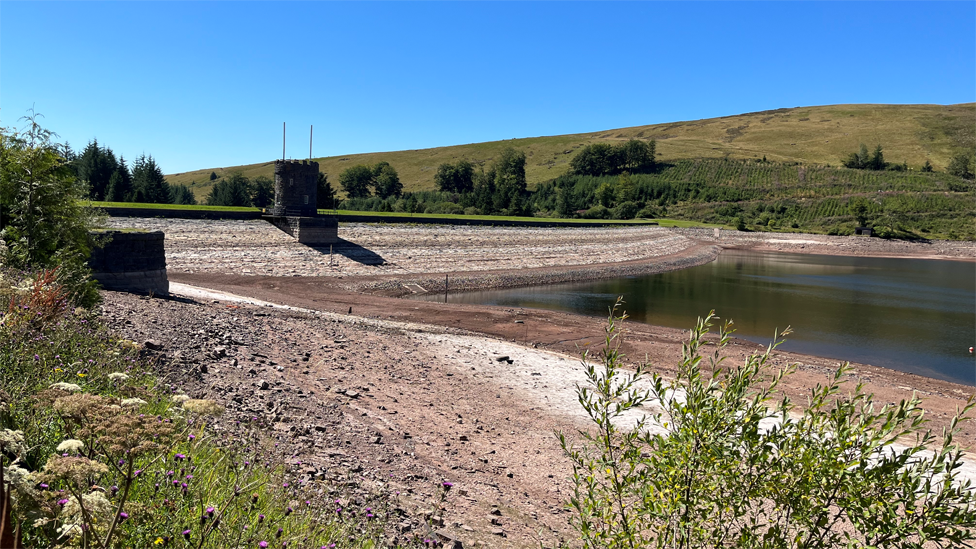
Reservoirs - including this one in the Brecon Beacons - ran low during the heatwave in 2022
Reservoir levels are "in a very good place", Mr Perry explained, after Wales received 108% of its expected rainfall between January and April 2023, including the wettest March in 40 years.
"We don't envisage any restrictions at this point in the year. We're ready for a difficult summer and are well placed to deal with that."
He said the company was having to plan "more now than we ever had in the past" for prolonged periods of dry weather, as a result of climate change.
Part of this involved investing £200m over the next five years in work that includes better connecting the different water supply zones in Wales, so water can move to where it is needed.
While acknowledging Welsh Water had more to do to fix leaks, Mr Perry said he would also urge the public to "be thoughtful in their use of water".
That message was echoed by Climate Change Minister Julie James who said "the vagaries of the weather and climate impacts mean that conditions can change rapidly".
She added: "If we use less, we will reduce the energy used for water supply and wastewater treatment, which will help reduce our carbon footprint and make us more resilient to climate change."
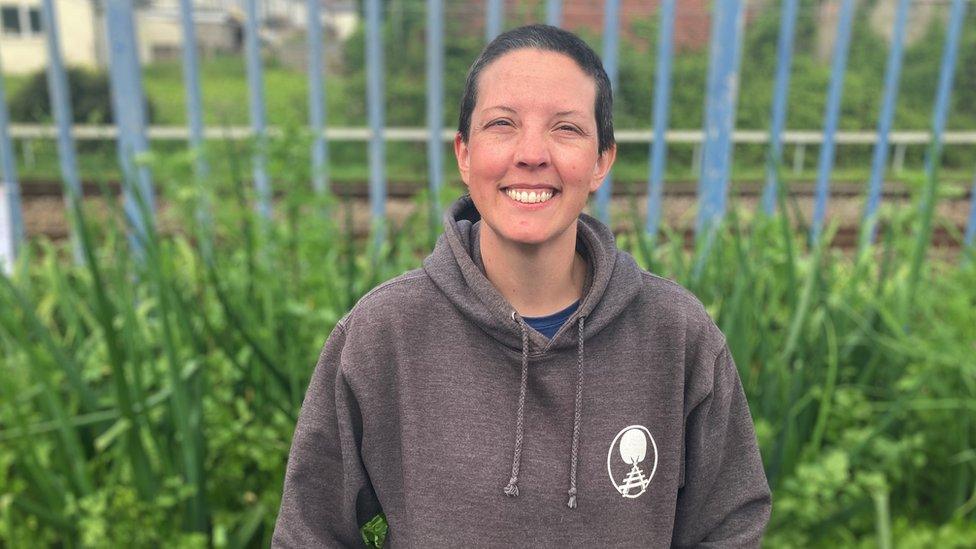
Hannah Garcia says all gardeners need to consider how their garden might cope in a drought
Green Squirrel, a climate action social enterprise based in Cardiff, has been running workshops teaching people how they can make their own gardens more resilient to drought.
Project manager Hannah Garcia said: "It's definitely something all gardeners need to factor in now because the climate is changing and we can't rely on the seasons to be the same."
She runs the sessions online and from the organisation's Railway Gardens project in Splott - which has transformed a derelict plot of land next to the train tracks into a hub for the community.
Rainwater is harvested and stored from the roofs of every structure in the garden and the beds are packed full of plants to help keep the soil covered and shaded so that it retains moisture.
"A lot of research has shown that it is urban and particularly lower income urban areas that suffer the most during extremely hot weather - there are fewer trees and fewer opportunities for people to get out of the heat," she added.
"So, anything that we can do to both provide a space here for people to be around greenery but also support them to make their own spaces cooler and shadier will be of benefit."
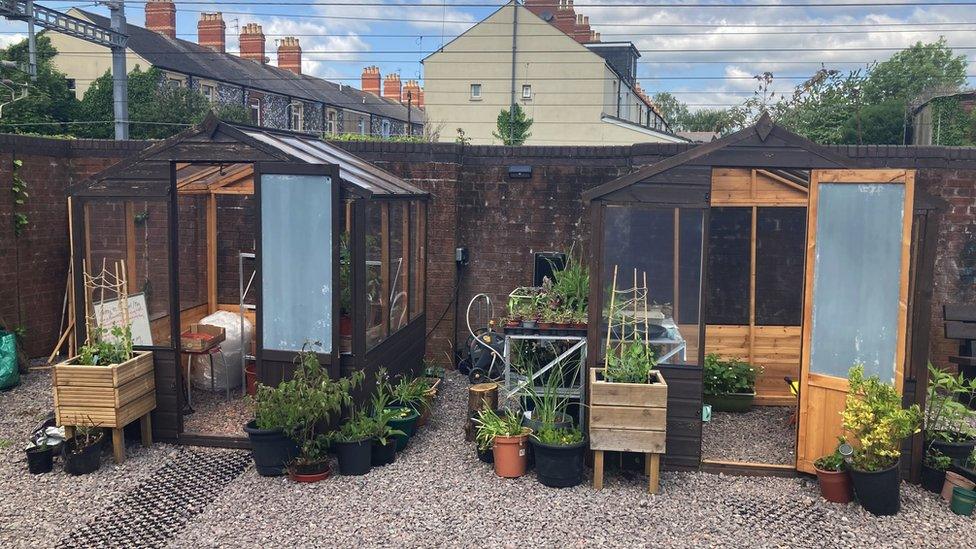
Rainwater is harvested at Railway Gardens project in Splott, Cardiff
Related topics
- Published25 August 2022
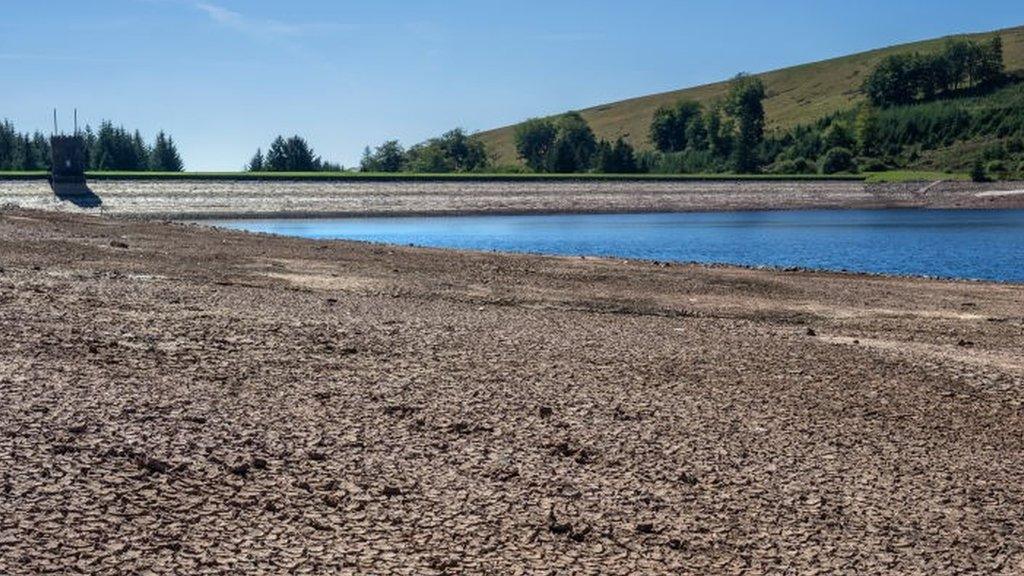
- Published11 August 2022
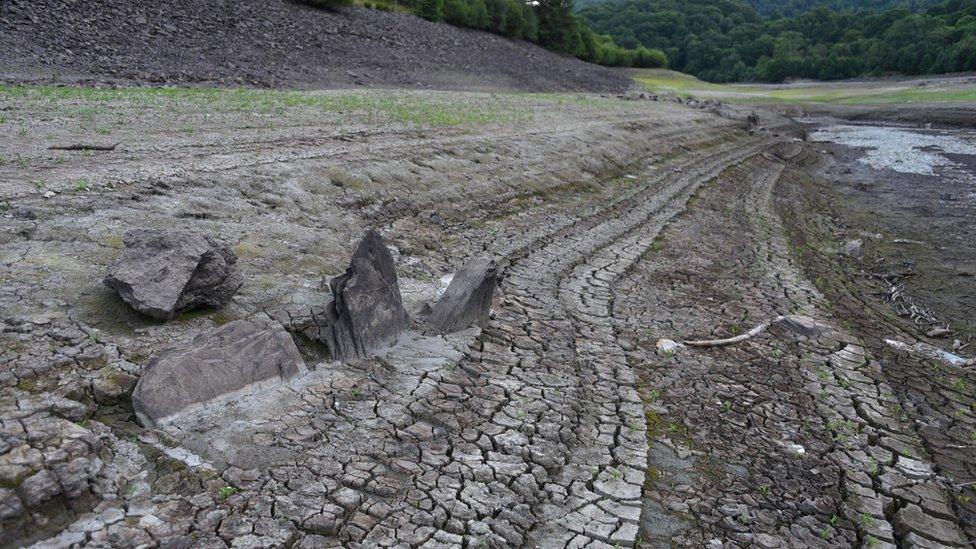
- Published8 September 2022
